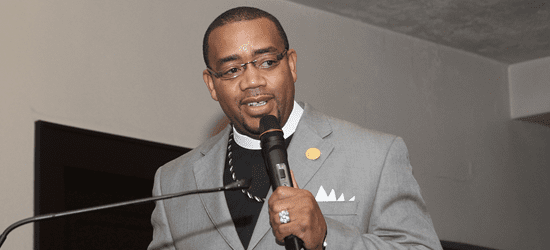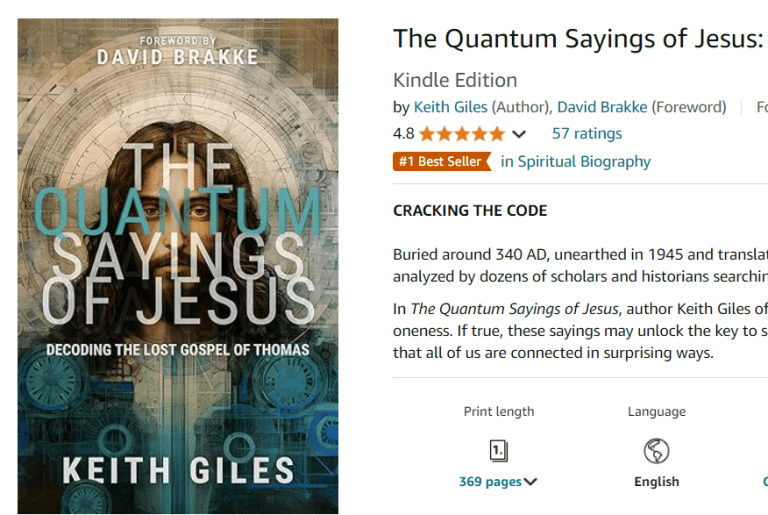
It’s not every day that someone responds to a divisive political statement with the kind of precision and fire that Bishop Talbert Swan recently delivered.
When Pastor Donnie Swaggart, son of famed televangelist Jimmy Swaggart, attacked Black leaders and accused Democrats of being “anti-God,” Bishop Swan wasn’t about to let it slide. He unleashed a series of critiques aimed not only at Swaggart but at the long history of hypocrisy embedded in white evangelicalism.
Swaggart had opened the floodgates by insinuating that voting for the Democratic party was akin to endorsing murder, transgenderism, and lesbianism. He further attempted to paint the U.S. as a nation “birthed by God” – a claim laden with dangerous implications.
Bishop Swan, known for his unflinching stance on social justice issues, fired back with a response as sharp as it was insightful, dismantling the racist undertones and historical contradictions of Swaggart’s remarks.
Swan’s response wasn’t just a rebuke to Swaggart; it was a broader indictment of white evangelical support for Donald Trump and the harmful policies they endorsed.
In no uncertain terms, he called out the hypocrisy that runs deep within evangelical political alignment: a group that claims to stand for Christian values, while backing a president whose personal and political life stands in direct opposition to those very principles.
Swan minced no words in his rebuke:
“Since this bigot, cosplaying as a preacher, came for my denomination, the Church Of God In Christ, my leader, Bishop J. Drew Sheard, and the Black church in general, let me offer this saved, sanctified, Holy Ghost-filled clap back to his racist, hypocritical temper tantrum about Black people not supporting Donald Trump.”
This direct confrontation set the tone for his detailed examination of evangelical hypocrisy.
Evangelicals, Swan reminds us, have often ignored the glaring contradictions between their supposed beliefs and the actions of their chosen leaders.
Trump, a man married three times, accused of numerous sexual offenses, and infamous for paying off porn stars, is hardly the “family values” candidate evangelicals claim to support. Yet, they defend him.
Why?
Swan offers a blunt assessment—power and racial dominance, not gospel truth, drive these allegiances.
The most potent part of Swan’s response may be his unearthing of the deep historical connections between white evangelicalism and systemic oppression. He draws a clear line from their backing of Trump to their role in justifying slavery, segregation, and even genocidal policies against Indigenous peoples. He describes a tradition where evangelicals have misused scripture to rationalize everything from the brutal treatment of Black people under slavery, including the horrific practice of “buck breaking,” to the violence of colonization.
Swan put it sharply:
“Their hypocrisy is not new. Historically, white evangelicals have misused the Bible to justify heinous acts. They were key supporters of slavery, using scripture to rationalize the subjugation, rape, and murder of Black people.”
This legacy, he argues, continues to shape evangelical politics today, especially in their unwavering support for Trump’s harmful policies toward the poor and marginalized.
Swan is right to highlight the selective morality of white evangelicalism. The focus on sins like abortion and homosexuality has long masked their complicity in acts of violence and oppression. F
rom supporting war and military interventions that kill civilians abroad to turning a blind eye to the suffering of refugees and immigrants, their moral compass, according to Swan, is bent by the pursuit of power rather than the teachings of Christ.
This selective morality, as Swan explains, is part of a historical trend:
“White evangelicals also supported the genocide and displacement of Indigenous people, rationalizing the theft of land as part of a divine mandate.”
Their present-day support of policies that harm vulnerable communities is simply an extension of that history, cloaked in religious language but rooted in the pursuit of dominance and control.
It’s this hypocrisy—this history of selective morality—that Swan pulls into the light. His words serve as a necessary reminder that standing against injustice requires more than cherry-picking the sins that align with political convenience. If white evangelicals want to talk about morality, they need to start by looking in the mirror and addressing their own legacy of violence and exploitation, a legacy that continues to harm the most vulnerable in society.
In a world that’s increasingly divided along racial and political lines, Swan’s clap back isn’t just about defending the Black church. It’s about challenging white evangelicals to live up to the gospel they claim to preach. If they can’t, then perhaps their allegiance is not to Christ at all, but to a system that prioritizes their own dominance above true justice.

The newest book from Keith Giles, “The Quantum Sayings of Jesus: Decoding the Lost Gospel of Thomas” is available now on Amazon. Order HERE>
Keith Giles is the best-selling author of the Jesus Un series. He has appeared on CNN, USA Today, BuzzFeed, and John Fugelsang’s “Tell Me Everything.”
He co-hosts The Heretic Happy Hour Podcast and his solo podcast, Second Cup With Keith which are both available on Spotify, Amazon, Apple, Podbean or wherever you find your podcast fix.













